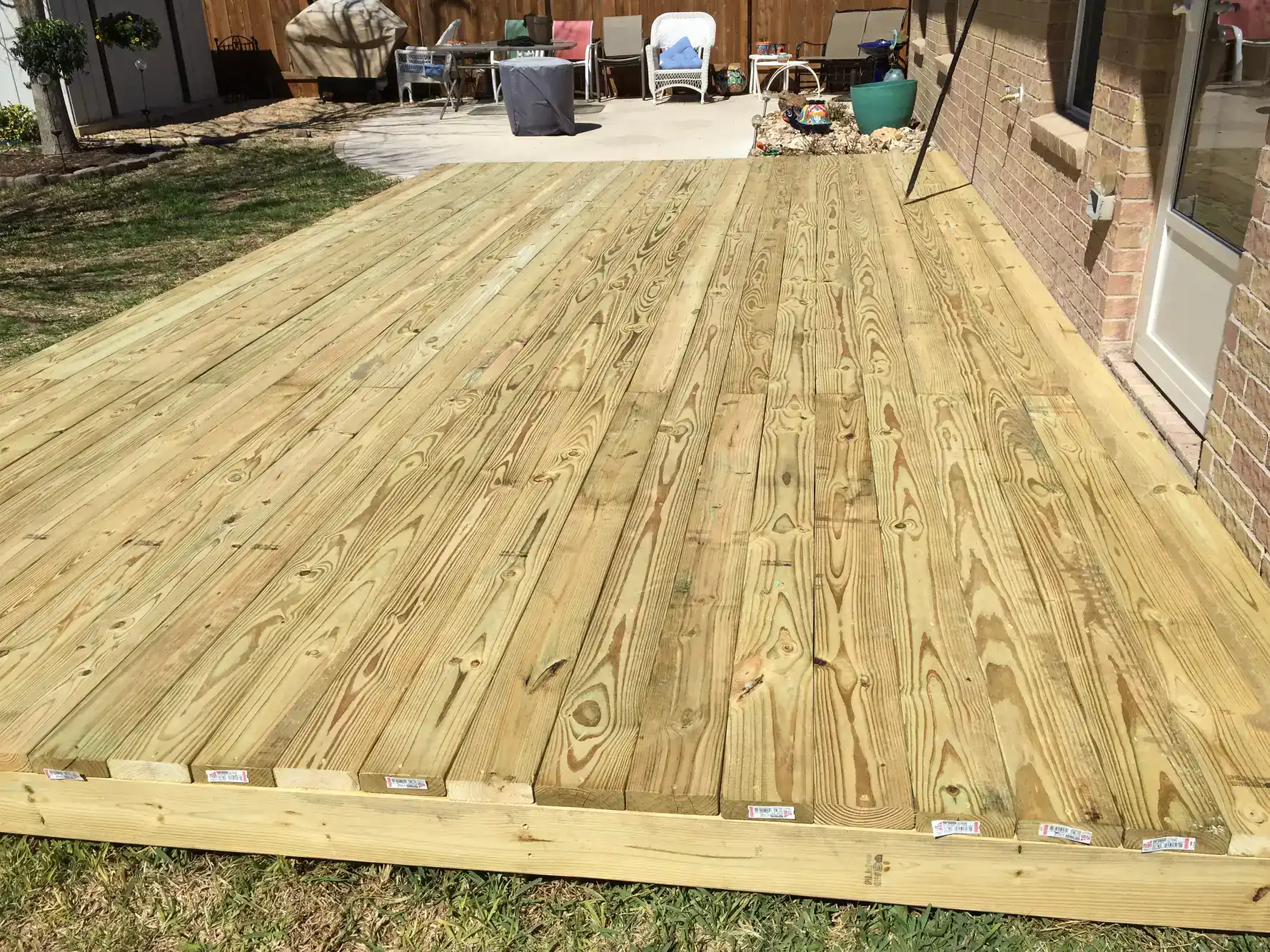
Hear from Our Customers
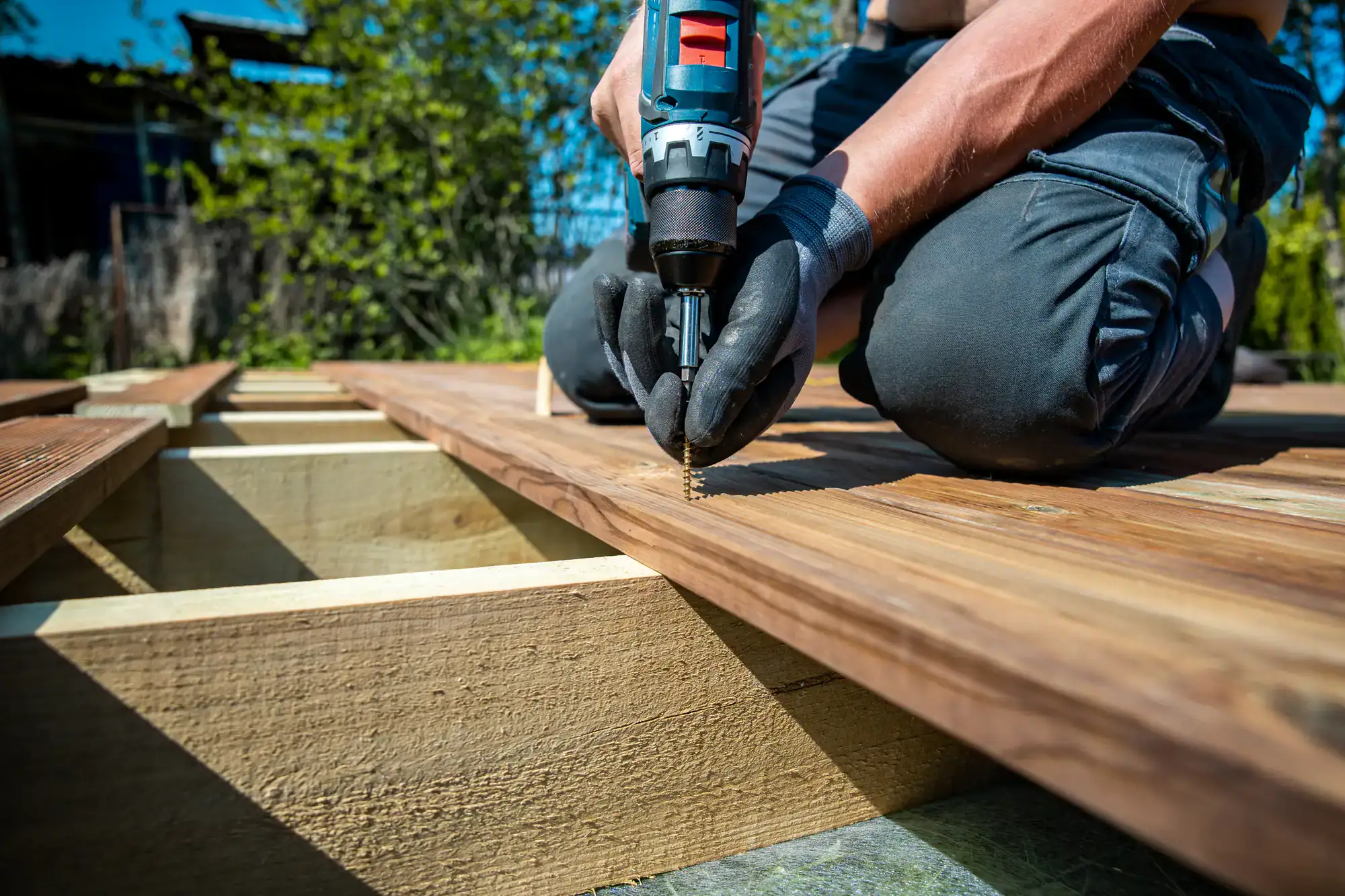
You get a deck that actually works for Long Island’s climate. No more worrying about summer humidity warping your boards or winter freeze-thaw cycles cracking your investment.
Composite decking gives you 25-30 years of low-maintenance outdoor living. While your neighbors are staining and sealing every few years, you’re hosting barbecues and making memories.
The right deck adds real value to your Smithtown home and creates the outdoor space your family actually uses. Not just another project that looks good for six months.
We’ve been serving Smithtown homeowners since 2001. We’re the local company that understands what coastal weather does to outdoor structures.
As a family-owned, licensed and insured contractor, we’ve built our reputation on honest communication and quality work. We live and work in this community, which means our reputation depends on every deck we build.
You’ll see our work around Smithtown because satisfied customers are our best advertisement. We handle everything from permits to final cleanup, so you get one point of contact for your entire project.
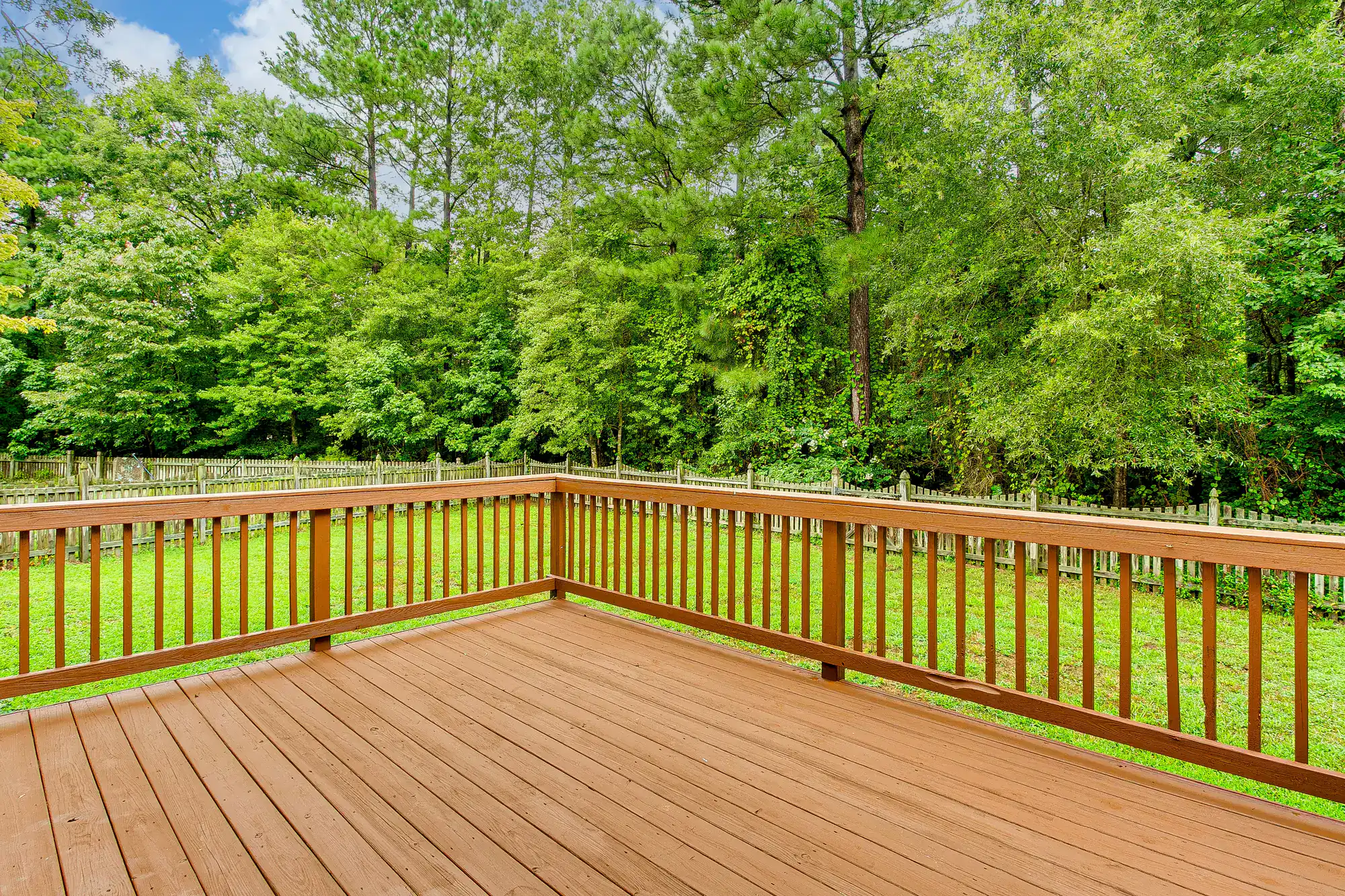
We start with a site visit to understand your space, needs, and budget. No high-pressure sales tactics or inflated estimates. Just an honest assessment of what’s possible and what it costs.
Next, we handle the permit process for you. Smithtown requires permits for most decks, and we know exactly what documentation the building department needs. This typically takes 2-3 weeks, which we manage completely.
Construction usually takes 3-7 days depending on size and complexity. We work efficiently, clean up daily, and keep you informed throughout the process. You get a deck that’s built right the first time.
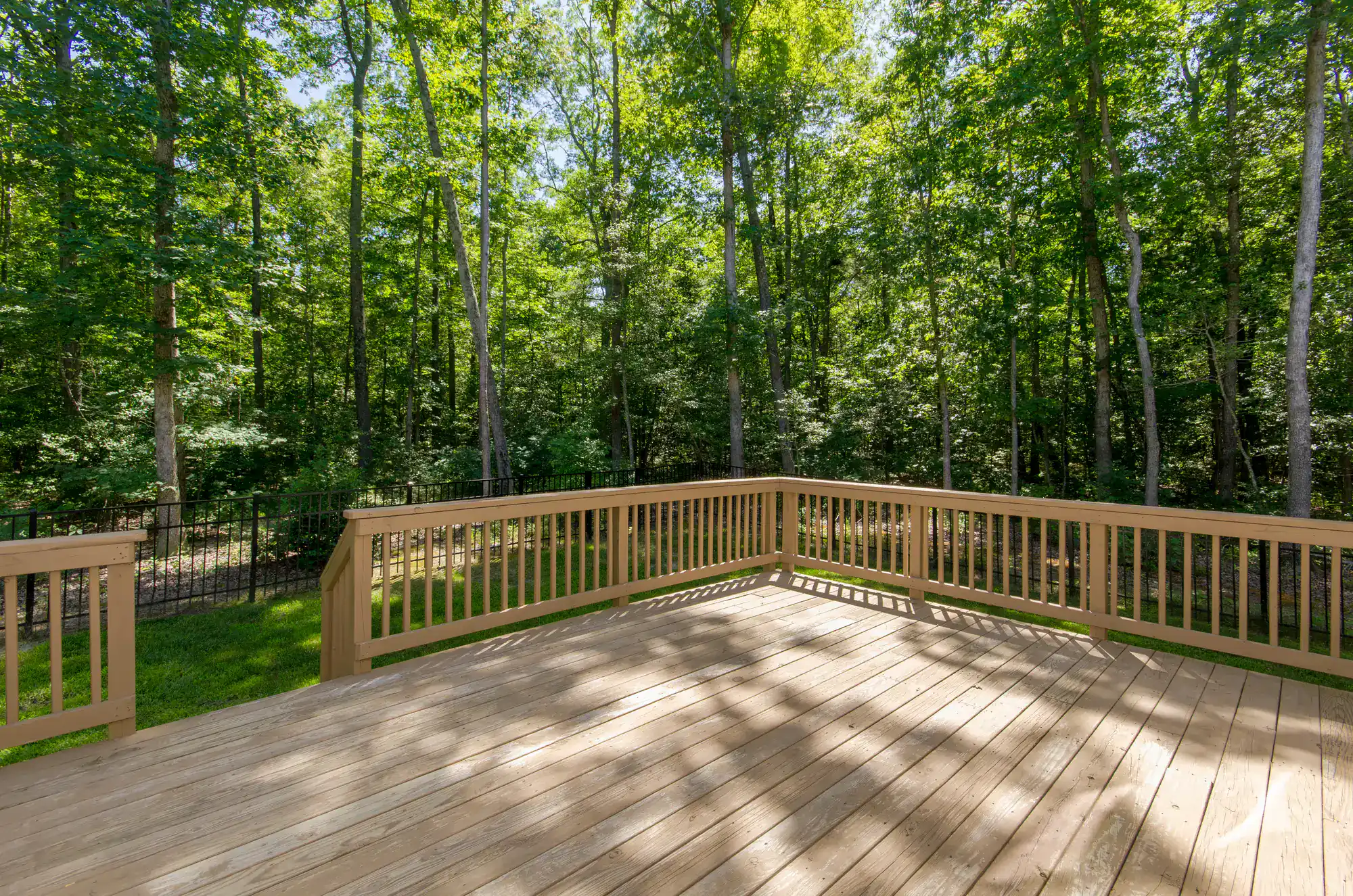
Ready to get started?
We work with both composite and wood materials, but most Smithtown customers choose composite because it handles our coastal climate better. Salt air, humidity, and temperature swings don’t affect composite the way they damage wood.
Composite decking costs more upfront but saves money long-term through reduced maintenance. No annual staining, sealing, or board replacement. Just occasional cleaning with soap and water.
For customers who prefer natural wood, we guide you to species and treatments that perform well in our area. Pressure-treated lumber and cedar can work, but they require regular maintenance to look good and last. We’ll explain exactly what that maintenance involves so you can make an informed decision.
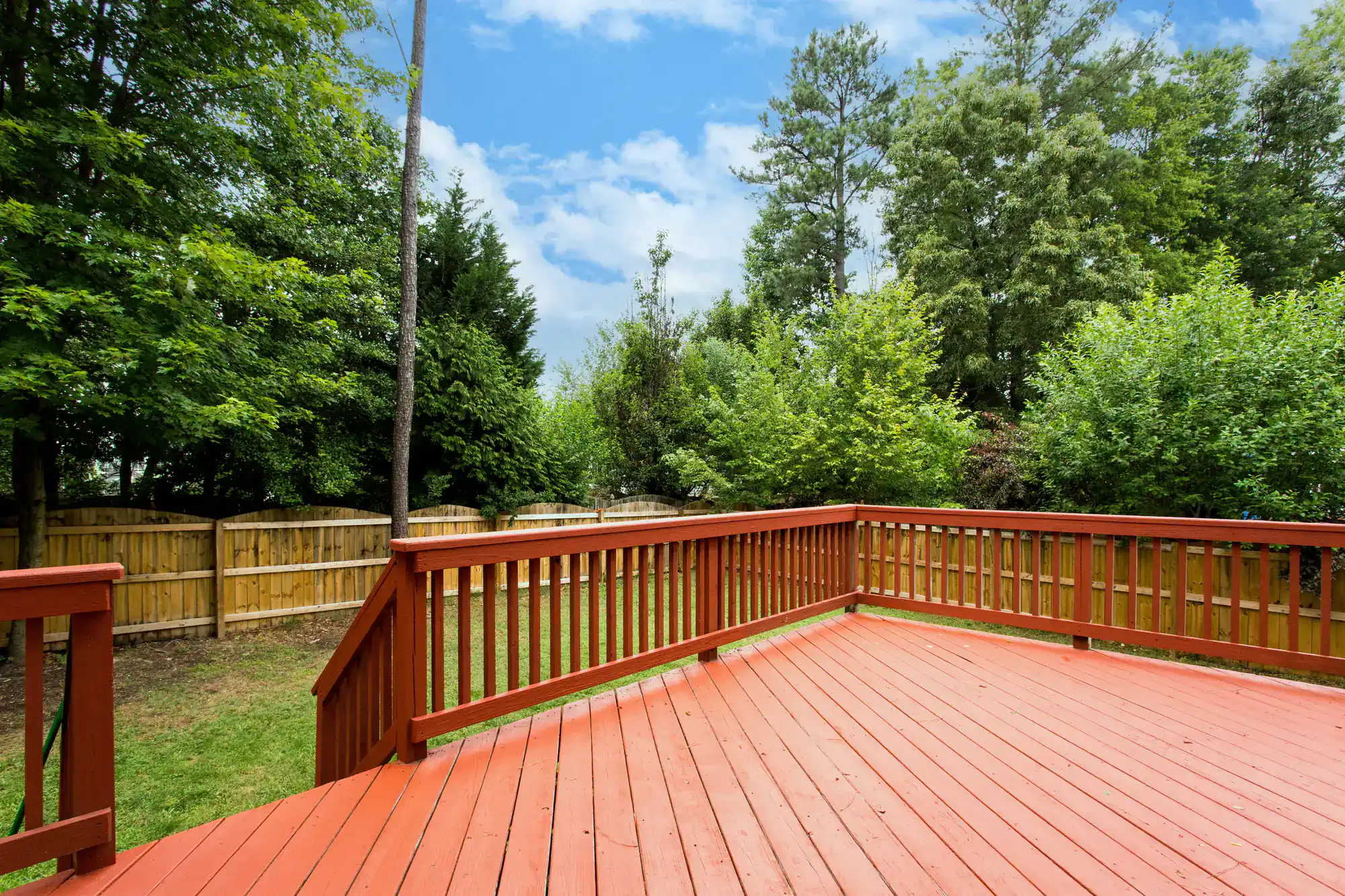
Yes, Smithtown requires permits for most deck construction, especially if the deck is over 8 inches high or attached to your house. Any deck above 30 inches from grade must have code-compliant railings.
We handle the entire permit process for you, including submitting applications, architectural drawings, and property surveys. The building department typically processes deck permits within 2-3 weeks.
Skipping permits can result in stop-work orders, legal issues, or demands to remove the deck entirely. It’s not worth the risk when we can handle everything properly from the start.
Quality composite decking lasts 25-30 years in Long Island’s coastal climate. It’s specifically engineered to handle humidity, salt air, and temperature changes without warping, cracking, or requiring annual maintenance.
Composite materials resist rot, mold, and insect damage that destroy wood decks. They also don’t splinter or fade like traditional lumber, making them safer for families and better-looking over time.
Most manufacturers offer 25-30 year warranties because they’re confident in the product’s durability. That’s significantly longer than wood decks, which typically need major repairs or replacement within 10-15 years in our climate.
Composite materials typically cost 50% more upfront than wood, but they save money over time through reduced maintenance. Most Smithtown customers invest between $15,000-$35,000 for a quality deck, depending on size and features.
Wood decks require annual staining, sealing, and regular board replacement. These maintenance costs add up quickly, often exceeding the initial price difference within 5-7 years.
We provide detailed written estimates that break down material and labor costs so you understand exactly what you’re paying for. No hidden fees or surprise charges after we start work.
Yes, sloped or uneven terrain is common in Smithtown and we regularly build decks on challenging sites. The key is proper foundation design and sometimes additional structural support.
Sloped lots often create opportunities for multi-level decks or under-deck storage that wouldn’t be possible on flat ground. We assess your specific site conditions and explain your options during the initial consultation.
Difficult terrain might increase costs but it doesn’t prevent you from having a great deck. We’ve worked on everything from steep slopes to waterfront properties with special environmental requirements.
We’re fully familiar with Smithtown’s building codes and work with the building department regularly. This includes specific setback requirements, height limitations, and structural standards for our area.
Code enforcement officers will inspect your project to confirm compliance. We schedule these inspections and handle any questions or requirements that come up during the process.
Our experience with local codes means we build it right the first time, avoiding delays or costly corrections. We also understand special requirements for waterfront properties where stricter environmental rules may apply.
Composite decks require minimal maintenance in Long Island’s coastal climate. Annual cleaning with soap and water removes salt residue and debris. No staining, sealing, or board replacement needed.
Clear leaves and debris regularly to prevent stains, and check for missing screws or loose railings as part of basic upkeep. Avoid metal shovels or harsh de-icing chemicals in winter, which can scratch the surface.
In summer, use outdoor rugs or umbrellas to keep the deck cooler and more comfortable. Unlike wood decks that need professional maintenance every year, composite decks stay looking good with basic homeowner care.